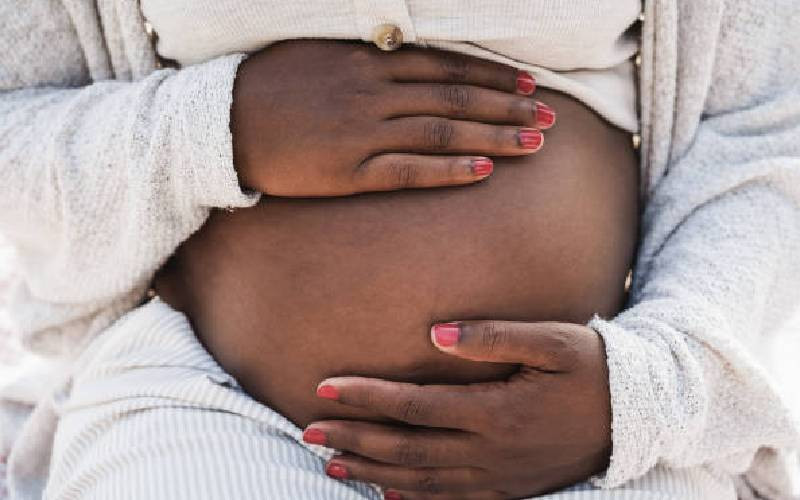
Health experts are encouraging pregnant women to go for regular screening to enable early detection of preeclampsia, one of the leading causes of death in pregnancy.
Dr Kireki Omanwa, an obstetrician and gynaecologist based in Nairobi, explained that the disease is more prevalent in women in the age brackets of 16-22 years, and those above 40 years.
The disease presents at around 20 and 37 weeks of pregnancy. It is characterised by high blood pressure, generalised swelling of the body, and clotting in the urine.
"This is why we encourage all women who get pregnant to start their Antenatal Clinic (ANC) at the beginning of pregnancy," said Dr Omanwa.
The incidence rate of preeclampsia in women who have not delivered globally is 2.7 percent to 3 percent, but in Kenya and other low-income countries, it is about 6 to 7 percent.
Preeclampsia affects about 4 to 8 percent of women who are first-time mothers, and 15 percent with subsequent pregnancies. If not treated, it develops into eclampsia, a condition that presents with convulsions, unconsciousness, trauma in the abdomen, and complications that affect the safety of the unborn baby.

Eclampsia affects the formation of the brain. "Unborn child risks developing brain injury, swelling of the brain, swelling of the liver, bleeding in the brain, and can lead to blindness, and death, complications attributed to convulsion by the mother," added Omanwa.
According to Omanwa, the causes of preeclampsia are not known but there are various theories, for example, autoimmune diseases, where vessels of the womb do not open up, during the formation of the baby. Other causes include inflammation and an imbalance of electrolytes.
"Preeclampsia is treated. We treat symptoms for blood pressure using anti-hypertensives. We also monitor scans, to make sure the patient does not have any other comorbidities, for the safety of the mother, and the unborn baby," Omanwa said.
But Dr Kakai Kulabusia, an immunologist, and a lecturer at Egerton University, Department of Medicine, said it is worrying that despite preeclampsia being among the leading causes of maternal and infant mortality, there is no segregated data and most of the time, doctors manage high blood pressure and not the cause. He said the country should invest more in research, for better treatment and policy formation.
"The inflammatory process should be looked into, and addressed, especially cytokines, which could be playing a role, in exposing the mother to preeclampsia," Dr Kulabusia said.

He explained that cytokines are a type of protein that is made by immune and non-immune cells, which has an effect on the human immune system.
According to the immunologist, in most cases, patients with preeclampsia deliver thorough C-Section, to protect their lives and that of the unborn baby.
He added, "We need to focus so much on inflammatory cytokines, so that we can develop a drug that slows done production of cytokines, during pregnancy."
Further, Omanwa advised pregnant women to observe nutrition and watch their weight during pregnancy.
"Women who are overweight may have high blood pressure and other comorbidities," said the expert. He said women should see gynecologists and obstetricians at least four times during the pregnancy cycle. The World Health Organisation (WHO) standard visits are eight times.
 The Standard Group Plc is a multi-media organization with investments in media
platforms spanning newspaper print
operations, television, radio broadcasting, digital and online services. The
Standard Group is recognized as a
leading multi-media house in Kenya with a key influence in matters of national and
international interest.
The Standard Group Plc is a multi-media organization with investments in media
platforms spanning newspaper print
operations, television, radio broadcasting, digital and online services. The
Standard Group is recognized as a
leading multi-media house in Kenya with a key influence in matters of national and
international interest.
